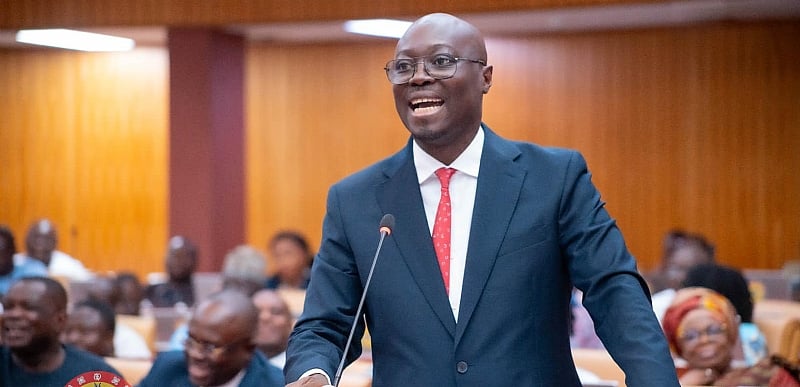Ghana’s energy sector, a critical pillar of the nation’s socio-economic development, has been grappling with a persistent financial quagmire for years. This precarious situation, characterized by a mounting debt burden, under-recovery of costs, and challenges in procuring fuel for power generation, has cast a long shadow over the sector’s stability and reliability. The accumulated debts, stemming from legacy issues and operational inefficiencies, have hampered the sector’s ability to invest in critical infrastructure upgrades and maintain a consistent power supply. This has resulted in occasional power disruptions, causing significant disruptions to businesses, industries, and daily life, while also fueling public anxiety and eroding investor confidence. The government, recognizing the urgent need to address this crisis and avert a complete collapse of the energy system, has proposed a series of measures to stabilize the sector and ensure its long-term viability.
Central to the government’s intervention is the Energy Sector Levy (Amendment) Bill, 2025, introduced by Finance Minister Dr. Cassiel Ato Forson under a certificate of urgency. This bill seeks to increase the levy on petroleum products by GH¢1, a move aimed at generating much-needed revenue to tackle the sector’s ballooning debt and secure a stable power supply. The proposed increase, while potentially impacting the ex-pump prices of diesel, petrol, and other related fuels, has been carefully calibrated to minimize the burden on consumers. Dr. Forson has assured the public that the expected price increase at the pump will be offset by the recent appreciation of the Ghanaian cedi against major international currencies. This strategic alignment of the levy increase with the cedi’s positive performance aims to cushion consumers from the direct impact of the levy while simultaneously addressing the urgent financial needs of the energy sector.
The government’s rationale for the levy increase is underpinned by the sheer magnitude of the financial challenge confronting the energy sector. Dr. Forson highlighted the urgent need for a minimum of $3.7 billion to clear the sector’s existing debt and create a clean slate for future operations. Furthermore, an additional $1.2 billion is required in 2025 alone to procure essential fuel for thermal power generation, underscoring the severity of the financial constraints. Without these critical funds, the power sector faces the imminent risk of collapse, a scenario with potentially devastating consequences for the Ghanaian economy and the well-being of its citizens. The proposed levy increase, therefore, represents a crucial step towards mitigating these risks and securing the sector’s long-term sustainability.
The amendment bill’s introduction in Parliament has initiated the necessary legislative processes, including scrutiny by the Finance Committee. This stage will involve detailed examination of the bill’s provisions and their potential impact on the economy and the public. While the technical justification for the levy increase is clear, its implementation comes at a politically sensitive time. The government faces the delicate balancing act of ensuring fiscal responsibility while mitigating the burden on citizens already grappling with a high cost of living. Navigating this complex terrain requires careful communication, transparency, and demonstrable commitment to utilizing the generated funds effectively.
The success of this initiative hinges on several key factors. Primarily, the continued strength of the cedi is crucial for absorbing the impact of the levy increase and preventing a corresponding rise in fuel prices. Any significant depreciation of the cedi could negate the intended benefits and place additional strain on consumers. Furthermore, transparent and accountable management of the funds generated through the levy is paramount. The government must demonstrate that these resources are being utilized judiciously to address the root causes of the energy sector’s financial woes and improve its overall performance. Public trust and confidence in the government’s ability to manage these funds effectively are essential for the levy’s successful implementation and the long-term stability of the energy sector.
In conclusion, the proposed levy increase represents a bold but necessary step towards tackling Ghana’s energy sector crisis. While the short-term impact on consumers is expected to be minimal due to the cedi’s strength, the long-term success of this measure depends on sustained economic stability, transparent financial management, and demonstrable improvements in the energy sector’s performance. The government’s ability to navigate these complexities and deliver on its promises will be critical to securing the energy sector’s future and ensuring a reliable and affordable power supply for all Ghanaians. The stakes are high, and the success of this initiative will have far-reaching implications for Ghana’s economic development and the well-being of its citizens.


